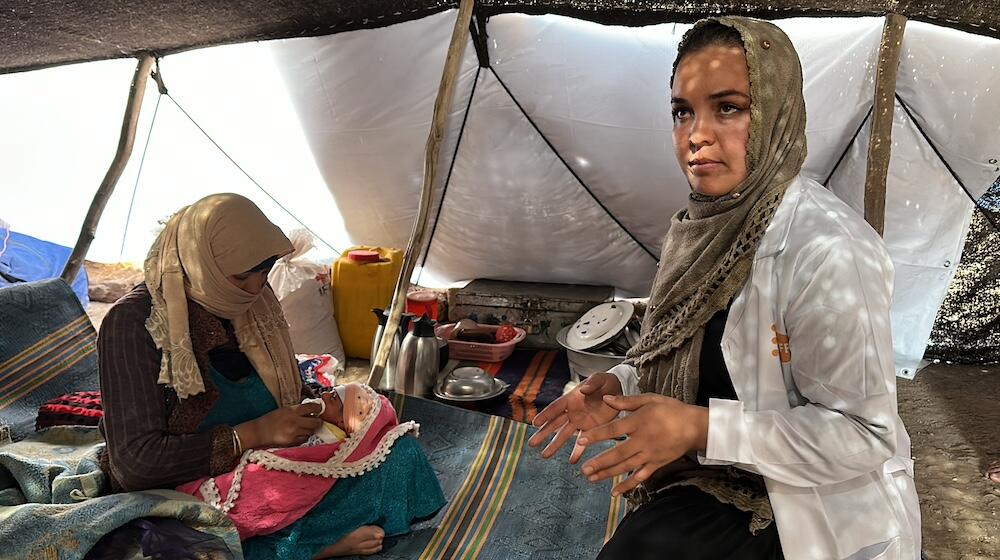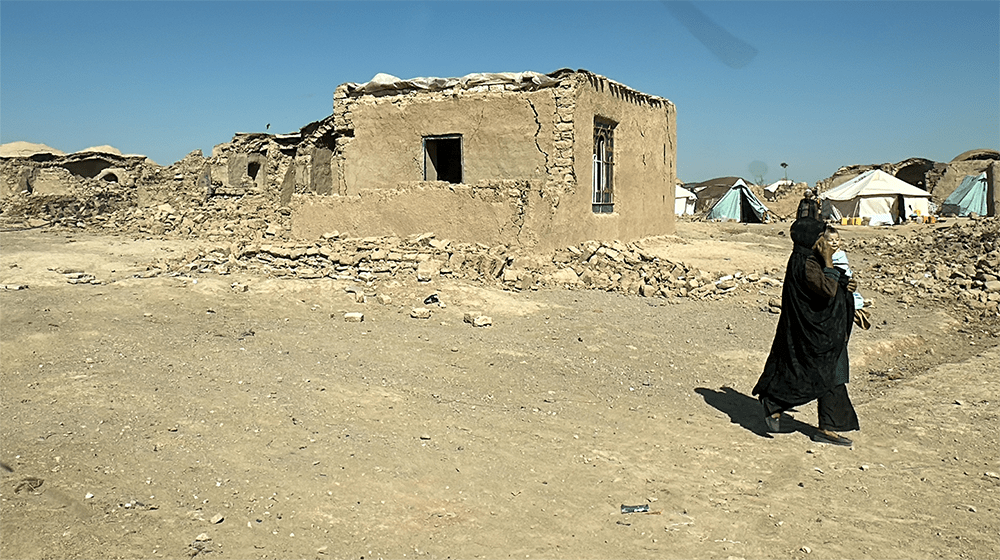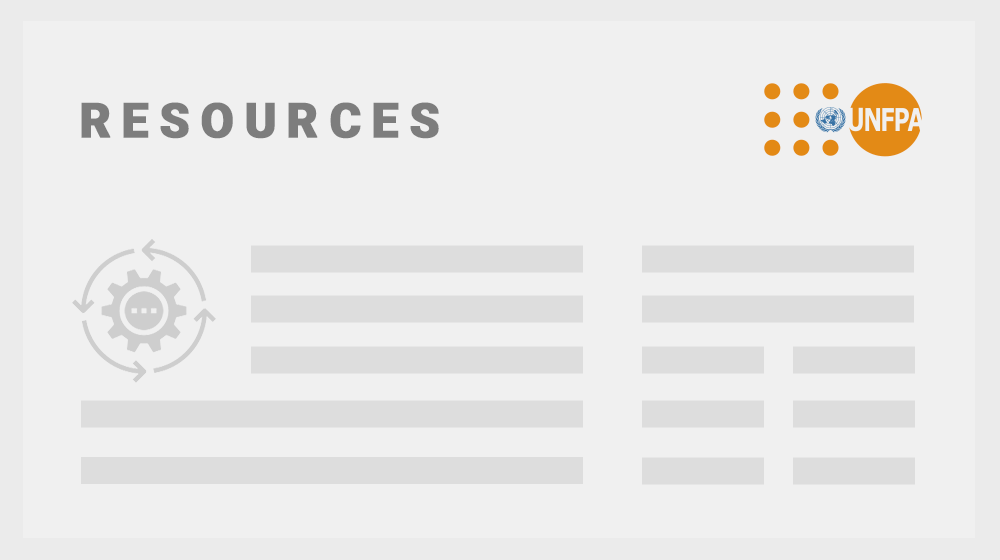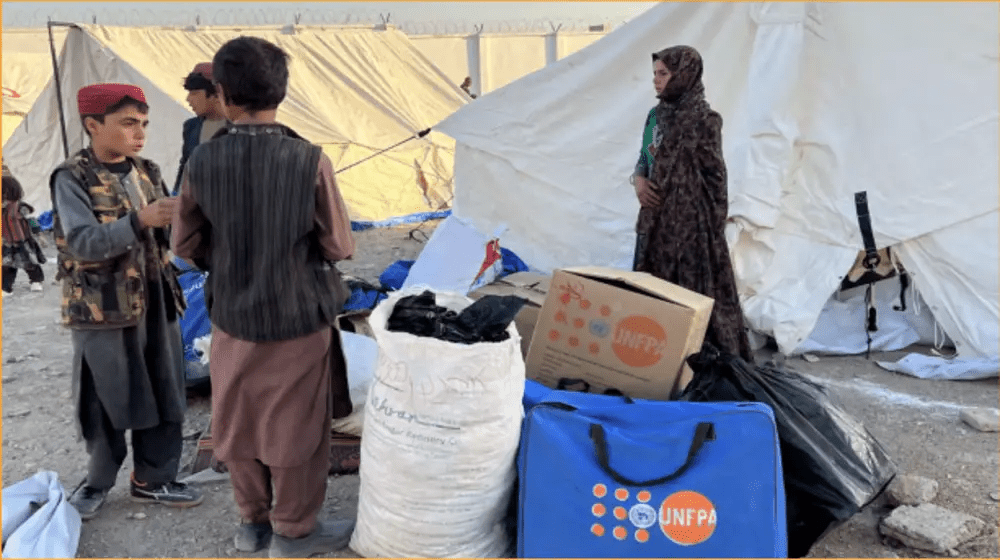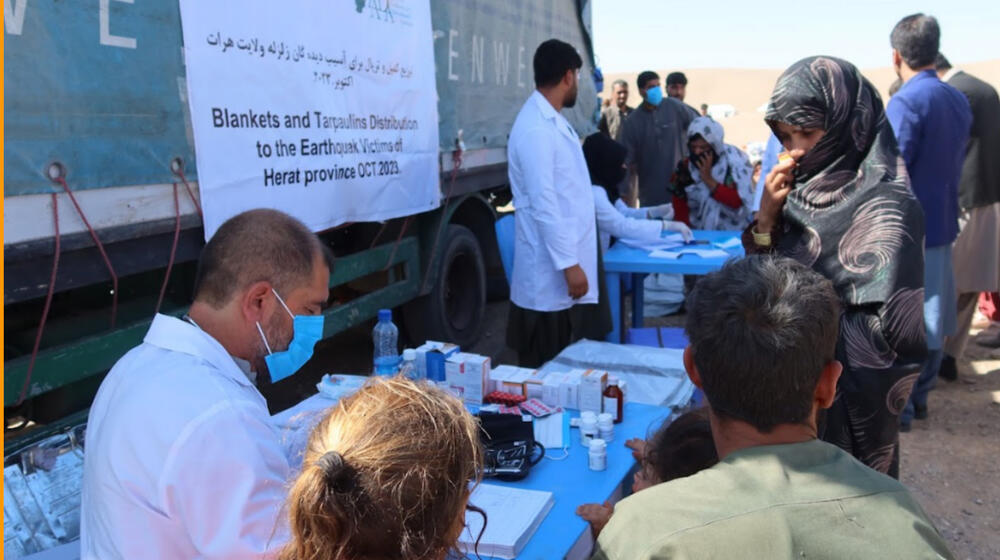Afghanistan
The latest updates
UNFPA continues to prioritize the emergency health care needs of women and girls affected by the recent earthquakes in Herat and surrounding districts. Almost 90 per cent of those killed were women and children.
More than 318,000 people have been impacted by the earthquakes, including close to 7,500 women who are currently pregnant and 38,000 adolescent girls.
UNFPA is coordinating with local authorities and partners on the response and has supplied four tents and nine mobile health units to deliver life-saving maternal and reproductive health services and psychosocial support, including emergency obstetric care. Midwives have been deployed to staff mobile health units. Reproductive health medicines and supplies to ensure safe deliveries are also being distributed, along with essential hygiene supplies. Emergency shelter, blankets and warm clothes remain a priority as families brace themselves for a harsh winter.
The earthquakes struck Herat at a time when two-thirds of the Afghan population requires humanitarian assistance to survive and as rates of malnutrition, including among pregnant and breastfeeding women, reach alarming levels.
Overview
Afghanistan is facing an ongoing humanitarian crisis, with political instability, a rapid economic decline and three years of consecutive drought driving food insecurity and unprecedented levels of hunger. A staggering 28.3 million people – two thirds of the population – need urgent humanitarian assistance in order to survive. The crisis is also reversing gains that have been made over the last 20 years, including around the rights of women and girls.
Adding to the crisis, three earthquakes and a number of aftershocks struck the western region of Afghanistan beginning on 7 October 2023. Most of the casualties were women and children, as they were at home while men were away at work.
Millions of people in Afghanistan have little or no access to health care, and the country remains one of the most dangerous places in the world to give birth. One woman dies every two hours during pregnancy or childbirth from causes that are largely preventable with access to skilled care. The estimated 20,000 women who give birth each month in hard-to-reach areas of the country face particular challenges reaching hospitals or health facilities.
Vital protection services for women and girls at risk or subjected to gender-based violence are also limited following the dissolution of dedicated reporting pathways, justice mechanisms and shelters.
UNFPA’s work in Afghanistan focuses on the provision of life-saving reproductive health services and psychosocial support for women by women. Together with national partners, UNFPA has established more than 360 Family Health Houses, staffed by community midwives that support safe births in some of the most remote areas of the country. Mobile health teams are working in 27 provinces, screening mothers, pregnant women and children for malnutrition and providing maternal and child health care. Psychosocial Counseling Centres, located in provincial and district-level government hospitals, provide free, confidential health and psychosocial counselling services for women and girls.
Together with our partners, UNFPA is committed to staying on the ground, and will continue to prioritize the delivery of essential reproductive health and psychosocial services for women and girls.
Updated on 30 October 2023
